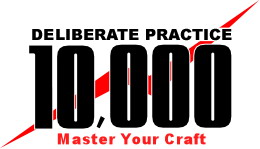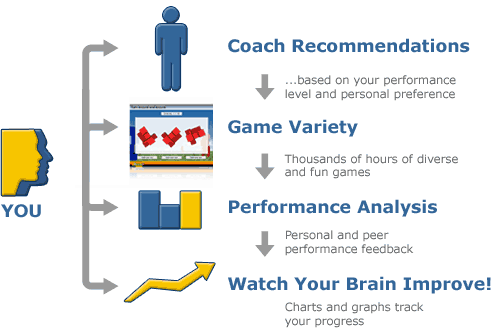Focused Training Produces Extreme Mental Feats Even in Older Adults
The Next Brain Blog is dedicated to exploring the techniques, materials and lifestyle choices that lead to improved brain function and peak cognitive performance. Much of what you will find on this blog produces incremental effects. The idea is to combine many of them into a program and reap the rewards over the longer term. That is the way it works with physical exercise and indeed with most things in life. But this need not be as boring as it sounds.
A longterm tightly-focused cognitive training program can produce extreme and even profound results in ordinary people.
Take for example, the case recently reported in the Research Blog about a 58 year old man, JB, that was able to memorize and recite (under controlled conditions) the entirety of Milton’s Paradise Lost. That is a 10,565 line 60,000 word epic poem. It took him nine years.
“Just how did JB manage to pull off this incredible feat? He studied for about one hour per day, reciting verses in seven-line chunks, consistent with Miller’s magic number seven – the capacity of short-term, working memory. Added together, JB estimates that he devoted between 3000 to 4000 hours to learning the poem. Seamon’s team interpret this commitment in terms of Ericsson’s ‘deliberate practice theory’, in which thousands of hours of perfectionist, self-critical practice are required to achieve true expertise.”
And his performance was far find mindless memorization. It involved “deep cognitive involvement” with the material.
One hour a day for nine years. A lot of training but doable. You may not be interested in memorizing a book but that’s not the point. JB’s work demonstrates that we can achieve extreme mental performance if we are willing to put in the work. A general claim is that with the right training you can achieve world-class performance in 10 years or 10,000 hours in any domain. It is not talent that wins but dedication, proper training and time. Looks like this might hold for cognitive performances as well.
Very interested to hear from readers that are considering or engaged in a longterm tightly-focused cognitive training program.
Categories: Memory and Learning, Older Adult, Training Tags:
Develop Your MOT – Multiple Object Tracking Skills
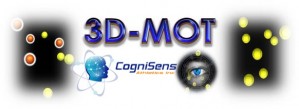 CogniSens Athletics is a small company dedicated to translating the latest neurophysics into tools for improving the cognitive performance of athletes. They just announced the release of 3D-MOT a three dimensional (3D) immersive training environment for developing the cognitive skills needed for multiple object tracking (MOT). It uses a computer and specialized goggles to teach you how to visually track more than one moving object at a time. A key cognitive skill in sports. To quote a news release:
CogniSens Athletics is a small company dedicated to translating the latest neurophysics into tools for improving the cognitive performance of athletes. They just announced the release of 3D-MOT a three dimensional (3D) immersive training environment for developing the cognitive skills needed for multiple object tracking (MOT). It uses a computer and specialized goggles to teach you how to visually track more than one moving object at a time. A key cognitive skill in sports. To quote a news release:
“D-MOT is a scientifically designed system for improving perceptual tracking skills by expanding an athlete’s capacity to absorb and process complex movement information. … players have shown that just one hour of distributed 3D-MOT stimulation yielded an average of over 50% increase in capacity to track at speed, with greater increases being realized with extended training. ”
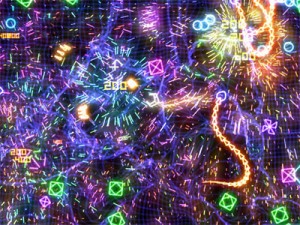 Most of us won’t have the opportunity to use such technology but I wonder if there is not more generally available options that produce some of the same effects. My guess is that some video games are an example.
Most of us won’t have the opportunity to use such technology but I wonder if there is not more generally available options that produce some of the same effects. My guess is that some video games are an example.
Consider Geometry Wars. Definitely need to be able to track multiple moving objects at once to get anywhere with this game. Indeed, in playing it, I have had to learn to defocus my eyes to increase my score. Most likely a sign that I am learning a new perceptual skill.
I am interested to hear from readers about examples of video games or other methods that can help us develop MOT (multiple object tracking) skills.
Categories: Mental Focus, Perception, Software, Training Tags: cognitive fitness, games, processing speed, sports
Spas and Storefront Gyms for Your Mind
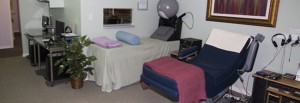 The Next Brain blog frequently covers software and services that provide online gym-like training for improving brain function and cognitive performance. But there are a growing number of physical locations opening that offer spa and gym experiences for those interested in cognitive training. For example, there is the Mind Spa in Sarasota Florida offering everything from neurotherapy to brain games and sensory immersion.
The Next Brain blog frequently covers software and services that provide online gym-like training for improving brain function and cognitive performance. But there are a growing number of physical locations opening that offer spa and gym experiences for those interested in cognitive training. For example, there is the Mind Spa in Sarasota Florida offering everything from neurotherapy to brain games and sensory immersion.
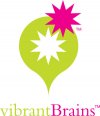 Or there is vibrantBrains in San Francisco that bills itself as a health club for your brain. They offer a checkup and a variety of circuit training programs using some of the best brain training technology on the market. For a more info on vibrantBrains check out this blog post.
Or there is vibrantBrains in San Francisco that bills itself as a health club for your brain. They offer a checkup and a variety of circuit training programs using some of the best brain training technology on the market. For a more info on vibrantBrains check out this blog post.
Interested to hear from readers that know about other storefront brain gyms or spas. What is the experience is really like?
Categories: Software, Training Tags: brain fitness, brain gym, brain training, cognitive fitness
Tai Chi for Cognitive Training?
Tai Chi is an ancient Chinese practice for linking mind and body in a martial art. Today it is a low-impact form of exercise and wellness that may improve a number of cognitive functions including mental focus, memory, managing emotions and perception.
Tai Chi involves a series of fluid, slow-paced motions and stretches that have been described as “meditation in motion”. The benefits of Tai Chi have just started to be formally studied. An in depth article on the Mayo Clinic website, Tai Chi: Discover the many possible health benefits, reports there is preliminary evidence for these benefits:
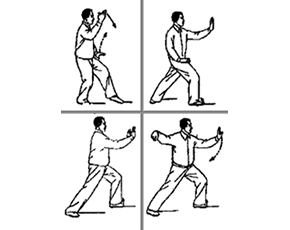 Reducing anxiety and depression
Reducing anxiety and depression- Improving balance, flexibility and muscle strength
- Reducing falls in older adults
- Improving sleep quality
- Lowering blood pressure
- Improving cardiovascular fitness in older adult
- Relieving chronic pain
- Increasing energy, endurance and agility
- Improving overall feelings of well-being
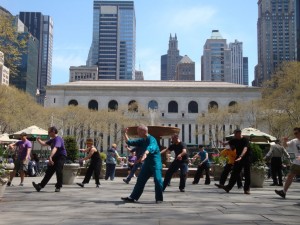 Clearly these benefits go beyond improving brain function and cognitive performance. Getting started in Tai Chi is not hard. There are many fine resources available for little cost. You can produce results in as little as 8-12 weeks.
Clearly these benefits go beyond improving brain function and cognitive performance. Getting started in Tai Chi is not hard. There are many fine resources available for little cost. You can produce results in as little as 8-12 weeks.
Check out this 5 minute free video for a decent introduction. It won’t make you an expert but it should be enough to determine if you want to try more. There is a product pitch but it is soft.
I am interested in readers’ suggestions for resources for learning Tai Chi, especially those that emphasize improving brain function and cognitive performance.
Categories: Ancient Ways, Manage Emotions, Memory and Learning, Mental Focus, Perception, Training Tags: cognitive fitness, embodied cognition, exercise
Medical Grade Neurofeedback at Home for $995
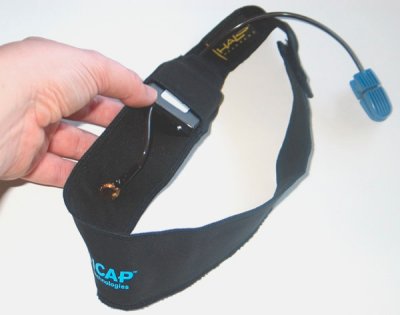 Neurofeedback is one of the most promising techniques we have for improving brain function and cognitive performance through systematic training. As we have discussed on the Next Brain Blog before:
Neurofeedback is one of the most promising techniques we have for improving brain function and cognitive performance through systematic training. As we have discussed on the Next Brain Blog before:
Neurofeedback training devices translate brainwaves into an external signal such sounds, graphs on a computer screen, movement of your computer’s cursor, action in a video game and even the motion of remote controlled toys.
Getting access to professional grade equipment can be very expensive. Consumer devices such as Neurosky’s headset or Emotiv’s EPOC (both of which I own) cost just a few hundred dollars but have limited functionality.
The market might be changing.
ICAP Technologies is offering the ICAP Release Meter, a professional grade neurofeedback system for $995. To get this price you need to use the coupon code available on the Mindware Forum. The Mindware Forum offers a good review of ICAP including a video interview.
Interested to hear from readers that have used the ICAP system or any at-home EEG-based neurofeedback training device.
Categories: Manage Emotions, Memory and Learning, Mental Focus, Software, Training Tags: brain training, neurofeeback
Benchmark Your Cognitive Fitness with Precision
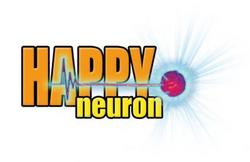 According to a recent press release, Happy Neuron, a brain training company has amassed a database of some 50 million training results. This is the biggest database of its kind and allows them to compare your cognitive training results to peers more precisely than anyone else on the market.
According to a recent press release, Happy Neuron, a brain training company has amassed a database of some 50 million training results. This is the biggest database of its kind and allows them to compare your cognitive training results to peers more precisely than anyone else on the market.
Happy Neuron uses games to train your brain. They have games for attention, language, memory, visual-spatial and executive function.
I am interested to hear from readers that use Happy Neuron’s products.
Categories: Executive Function, Memory and Learning, Software, Training Tags: brain training, games
Audio CDs on Mindfulness – Do They Work?
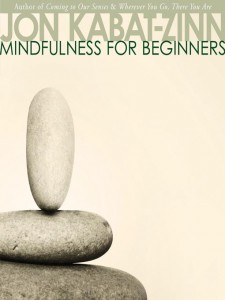 Mindfulness techniques are designed to bring us into the present moment as fully as possible. It involves paying attention on purpose and without judgment. Mastering this type of attentional focus has proven to be a gateway for higher cognitive performance.
Mindfulness techniques are designed to bring us into the present moment as fully as possible. It involves paying attention on purpose and without judgment. Mastering this type of attentional focus has proven to be a gateway for higher cognitive performance.
Several self-instruction techniques for doing mindfulness training have been covered in other posts on the Next Brain Blog. Unfortunately, it can be difficult for beginners to use such techniques on their own. It is best to work with an experienced guide. This can be expensive and inconvenient. One alternative is to try and get such guidance off a CD. But do they really help?
To find out I bought a copy of the audio book Mindfulness for Beginners. It is a $13 two-CD set prepared by Jon Kabat-Zinn a well known leader in the field. The first CD provides an overview of the foundations of mindfulness and the second walks you through five distinct mediations or training exercises. I listened to both CD and then practiced the mediation that seemed most interesting. Although the narration style took some getting use to, the coaching and just plain reassurance was key for making progress.
One point that was particularly important (for me at least) was coaching around what to do as your mind wanders during the mediation.
Dr. Kabat-Zinn was very clear that such wandering is fine. The goal is not to stop it but to gently bring your attention back to the present. You do this by refocusing your attention on the subject of the mediation – eating a rasin in my case – over and over again. Indeed, for the beginner, bringing your attention back to focus on the mediation is the point of the exercise. Bring it back enough times and focusing becomes a habit. I experienced a bit of that! Something I was not able to do working on my own with books.
 I was attracted to the eating mediation because the exercise walks you through looking at, feeling, smelling, hearing, salivating, chewing, swallowing and otherwise sensing a raisin. May sound a bit strange but I can see many uses in my design work for such direct sensory experience. My plan is to try the other mediations and then build one into my daily mind training routine.
I was attracted to the eating mediation because the exercise walks you through looking at, feeling, smelling, hearing, salivating, chewing, swallowing and otherwise sensing a raisin. May sound a bit strange but I can see many uses in my design work for such direct sensory experience. My plan is to try the other mediations and then build one into my daily mind training routine.
I am interested to hear from readers that can recommend other CDs for mindfulness training.
Categories: Books, Mental Focus, Perception, Training Tags: Buddhist, mindfulness
See Much Better By Thinking Differently
 Believe it or not your mindset has a big impact on how well your eyes work. The assumption that you should be able to see something or that you have excellent eye sight translates into improved visual performance scores. This fact was dramatically illustrated in a new research study, Vision Gets Better with the Right Mindset, reported in Science News.
Believe it or not your mindset has a big impact on how well your eyes work. The assumption that you should be able to see something or that you have excellent eye sight translates into improved visual performance scores. This fact was dramatically illustrated in a new research study, Vision Gets Better with the Right Mindset, reported in Science News.
“Eyesight markedly improved when people were experimentally induced to believe that they could see especially well, Langer and her colleagues report in the April Psychological Science. Such expectations actually enhanced visual clarity, rather than simply making volunteers more alert or motivated to focus on objects, they assert.”
I have seen similar studies concerning memory. If you really believe you have a great memory (or a very poor one) you do better (worse) on recall and recognition tests.
So how do you get the right mindset to achieve high-performance vision? One way may be to do some visual training and score well. You may want to check out, How Good are Your Visual Skills? There are a number of straight forward exercises and tests covering perception, tracking, focusing and eye teaming. For example, one of the perception test (figure ground) is shown in the picture above. Do you see the owl?
I am interested to hear from readers that have used specific techniques to develop affirming assumptions about their ability to see.
Source: Image of Pig
Categories: Perception, Training Tags: Mindset
3-Hour Brain Boot Camp at UCLA
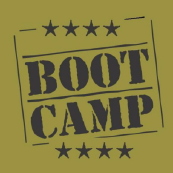 The Center for Memory and Aging at UCLA offers a half-day intensive course that covers (and I quote):
The Center for Memory and Aging at UCLA offers a half-day intensive course that covers (and I quote):
- Measure baseline memory, stress and fitness levels to individualize healthy lifestyle programs.
- Learn basic techniques to respond to everyday memory challenges..
- Sample a healthy brain diet and learn recipes for a brain-protective nutritional plan.
- Master advanced memory techniques for names and faces.
- Practice relaxation exercises to improve mental focus.
- Map out a daily lifestyle plan for maintaining benefits for the long haul.
- Gauge progress and notice results in just one day.
The course is geared towards older adults with memory concerns. It was developed by Gary Small and other experts in memory, aging and the brain.
Interested to hear from readers that have completed this course or similar courses that take a scientific approach to age-related memory challenges.
Categories: Cognitive Decline, Memory and Learning, Older Adult, Training Tags:
Solve Problems and Learn While You Sleep?
 We spend a good part of our life sleeping and dreaming. Getting adequate quality sleep is essential for brain health. But we may be able to go farther than that and tune how we sleep to enhance cognitive performance. Lucid dreaming, subliminal learning and cognitive priming are three techniques that have been suggested for getting more out of our brains even while we sleep. We will cover these topics as well as how sleep in general impacts peak cognitive performance on the Next Brain Blog.
We spend a good part of our life sleeping and dreaming. Getting adequate quality sleep is essential for brain health. But we may be able to go farther than that and tune how we sleep to enhance cognitive performance. Lucid dreaming, subliminal learning and cognitive priming are three techniques that have been suggested for getting more out of our brains even while we sleep. We will cover these topics as well as how sleep in general impacts peak cognitive performance on the Next Brain Blog.
Cognitive priming is my personal favorite. I have done it with good results for nearly two decades. I have never seen any scientific studies (until now) that back it up.
Cognitive priming to improve performance through sleep is simple to do. You intensely immerse yourself in the topic to learn or problem to solve near bedtime. When you sleep you want to have a dream about the problem or topic. Upon waking you should be able to make much better progress on the topic or problem than you could have if you did not dream about it.
I was happy to hear that such phenomenon was demonstrated under scientific conditions in a a recent study at the Beth Israel Medical Center. I was reported on in the New York Times as Learning While You Sleep. Volunteers were given the task of learning to move through a complex maze. After a training period some of the group slept for 90 minutes and the others just rested.
Re-testing revealed that those that slept and dreamt about the maze had a 10 times improvement in score while those that slept but did not dream or just rested showed no improvement or even a a worse score.
Categories: Memory and Learning, Problem Solving, Sleep, Training Tags:

